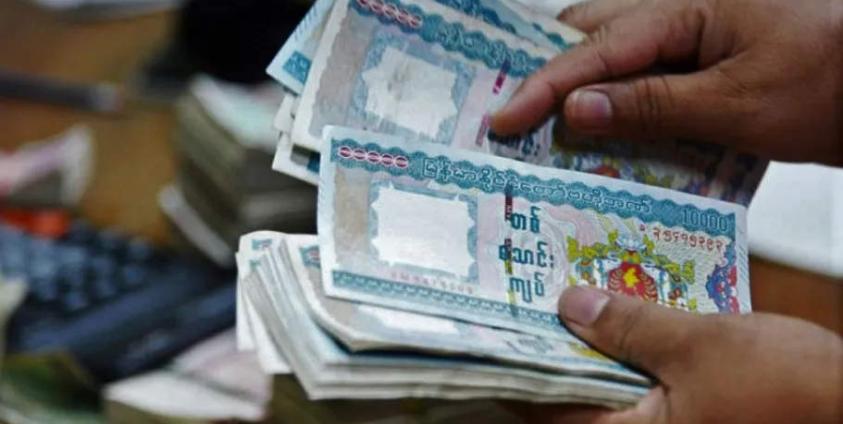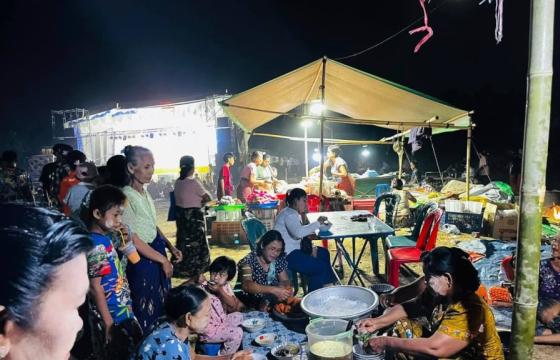The coup junta's restrictions on banking services created a black market and violated the country's monetary responsibility.
With the military coup, Burma suffered severe restrictions on banking services.
Due to the junta's restrictions on banking services, Myanmar's legal currency has been exchanged for various percentages on the black market.
With the restrictions on banking services, the black money market has strengthened as almost all remittance and withdrawal services have been shut down.
The coup junta's restrictions on banking services immediately created a black market.
The rise of the black money market is directly proportional to the banks' cash flow restrictions.
Banks used to pay 2 million kyats a week for a bank book. It has been reduced to 500,000 kyats, and since June, only 300,000 kyats per week has been issued to a bank. At present, only 500,000 cash is issued every two weeks.
At present, only 500,000 cash is issued every two weeks.
After the military coup on February 1, banks disbursed money to cashiers on a rotating basis. Covid is currently using a pay-as-you-go system to keep crowds out of the third wave.
Banks are only issuing 20 tokens a day when making phone calls, making it difficult for people to withdraw money. This situation has strengthened the black money market.
“At 300,000 a week, there is nothing we can do in the banks. To be hospitalized, I had to exchange it for a percentage because it was life-threatening. We have to pay 7%, ”said a resident who exchanged money on the black market for hospitalization.
Currently, 5% to 12% of the Myanmar currency is being exchanged on the black currency market in Mon State.
In the black money market, cash is exchanged online. They are interconnected and exchanged.
"We are not comfortable," he said. My salary is 200,000. The company transfers the salary with E Money. I have to use my salary as a percentage of my salary, which can no longer be easily withdrawn at the bank. There is nothing left every month, ”said a company employee.
Money changers say the black money market in Mon State is now growing.
"People with a lot of money now are playing to their heart's content," he said. Today's exchange rate is 6.8 percent, ”a money changer told The Irrawaddy.
In the black money market of Mon State, the market is open daily and exchanges have reached the stage of exchange.
Remittances and withdrawals
After the military coup, most remittance and withdrawal services were closed due to restrictions on banking services, and agents were no longer disbursed.
Money transfer Companies have traditionally disbursed agents every two days, but have not withdrawn since May.
Because the companies do not issue money, the agents have to withdraw money on their own schedule. Withdrawals now range from 5% to 10%.
"All the agents are doing their best because the money is not paid," he said. Kpay used to issue about 10 lakhs a week. It is no longer issued now, ”said a remittance agent.
An e-money company call center says agents can no longer pay due to banking restrictions.
"We do not make regular deposits because the banks have limited cash flow," the call center said.
Limitations of banking services that need to be fixed as soon as possible
Coup d'état restrictions on banking services have a huge impact on Mon State's economy.
Due to banking restrictions, most businesses are operating normally and some have been shut down.
In the course of business, banks are exchanging money on the black market for a percentage that cannot be easily withdrawn.
“Banks can only operate for 30 lakhs a month. Transferring money is not easy. In that case, the business will have to close down, ”said a businessman.
Restrictions on banking services have shut down most businesses in Mon State, and unemployment has continued to rise.
“The banking service restriction needs to be revised as soon as possible. No one can work long hours in exchange for a percentage. If it continues like this, all business will stop in a short time, ”said one businessman.







